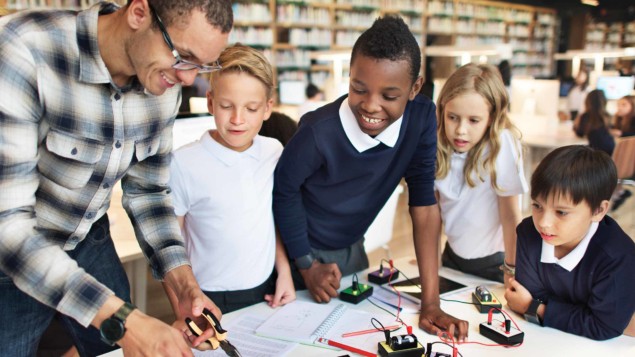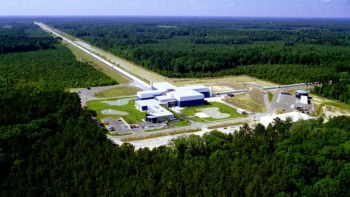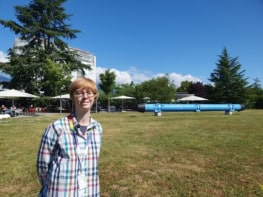Paul Hardaker explains why learned societies like the Institute of Physics must stay relevant to the modern world

The question I’m asked most of all, apart from “Do you know Brian Cox?”, is “What does the Institute of Physics (IOP) do?” It’s a more complicated question than you might think, but the motivation for what we do is simple. The IOP was formed in 1920 as a professional body to support the development of the profession of physics and the physicists who worked in it. It merged in 1960 with the Physical Society of London, which had been founded in 1874 to support the scholarly discipline of physics.
Bringing together the learned society and professional body made perfect sense, even if it’s a relatively unusual combination, especially in the UK and Ireland. What’s interesting, however, is that the IOP – like many other scientific societies – is a charity. It therefore exists for the benefit of the wider public and not directly for the sake of the discipline or the members themselves. Indeed, by law we are required each year to write a “public benefit statement”.
Staying true
As we approach a new decade of the 21st century, the question for all scientific societies is how to stay true to their founding principles, while remaining relevant in a changing and uncertain landscape. I hesitate to start with money, but it dictates the scale and scope of what societies can do. Many, like the IOP, rely on income from their publishing activities to support much of their work, which is what makes society publishers so different from their purely commercial rivals.
As we approach a new decade of the 21st century, the question for all scientific societies is how to stay true to their founding principles, while remaining relevant in a changing and uncertain landscape.
Paul Hardaker
Any learned society must therefore have a sustainable business model for its publishing programme if it is to survive and to curate the scholarly record of the discipline for generations to come. This requires significant investment in digital technology, in managing and maintaining the historical archive, and in the people who support the editorial and peer-review work. None of this is cheap or easy and we can be fortunate that IOP Publishing does such a good job.
Perhaps the most vital role for a society like the IOP is educating the next generation, which all starts in schools. I have never been a huge fan of the “leaky-pipeline” model, whereby people enter via the school system at one end and pop out at the other in universities or businesses, with some leaving the discipline along the way. I think it is a lot subtler than that and we should rather adopt a “whole-systems” approach.
Societies like ours must therefore not only support teachers – and we have a significant and successful programme here at the IOP – but also provide an independent benchmark for the quality of school curricula, of educational resources, teacher training and assessment methods. Furthermore, societies must encourage pedagogical research so we know how best to educate young people.
Societies like the IOP are also perfectly placed for developing professional standards, not only to raise the level of teaching in schools and universities, but also to support world-class, physics-based businesses. We can accredit degrees, offer chartered status and establish best-practice standards for diversity and inclusion. But, if we are clever, we can unite these strands so that an organization’s efforts to become more diverse and boost the professional qualifications of its staff are part of any accreditation programme for the services they provide.
Such efforts lie at the heart of a modern, progressive learned society, but simply delivering them is not enough in the long term. To ensure that a discipline like physics benefits the public, we often need new policies at national and international level, which in turn requires an evidence base that learned societies are well placed to marshal. And sometimes we also need to challenge both policy and policymakers to get things done.
Learned societies must also do more to engage members of the public so they play a more active role in areas such as sustainable energy, climate change, the security of our water resources and agriculture, and of course national security. In addition, we need the public’s input to maximize the value to society of a connected world, where data and bandwidth are growing exponentially, where artificial intelligence and machine learning will be an integral part of our future, and where illness and disease can spread so easily.
Learned societies must also do more to engage members of the public.
Paul Hardaker
Before I close, let me say I am not convinced, as some are, that we live in a “post-truth” world. The problem is that some people misuse information, which gets packaged and redistributed by social media around the world in seconds. So if the public are to understand the “truth”, they need societies like ours. We are a trusted voice and we must guard that responsibility and use it wisely, working together with other societies to find a stronger, collective voice.
Staying relevant
Digital services will be vital for learned societies in that effort to engage and expand their reach, as will be the need to form new and imaginative strategic partnerships. None of this will be easy, but it’ll keep such societies relevant. The world around us and the relative importance of things are very different from when Physics World was founded; it will be up to us to search out the new equilibrium.

The changing face of physics
What was it that Abraham Lincoln once said? “The dogmas of the quiet past are inadequate to the stormy present. The occasion is piled high with difficulty, and we must rise with the occasion. As our case is new we must think anew and act anew. We must disenthrall ourselves, and then we shall save our country.”



